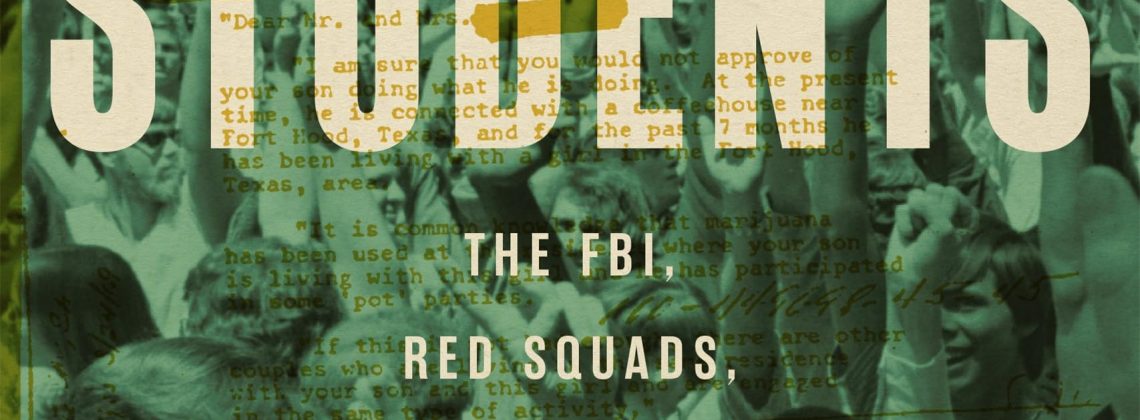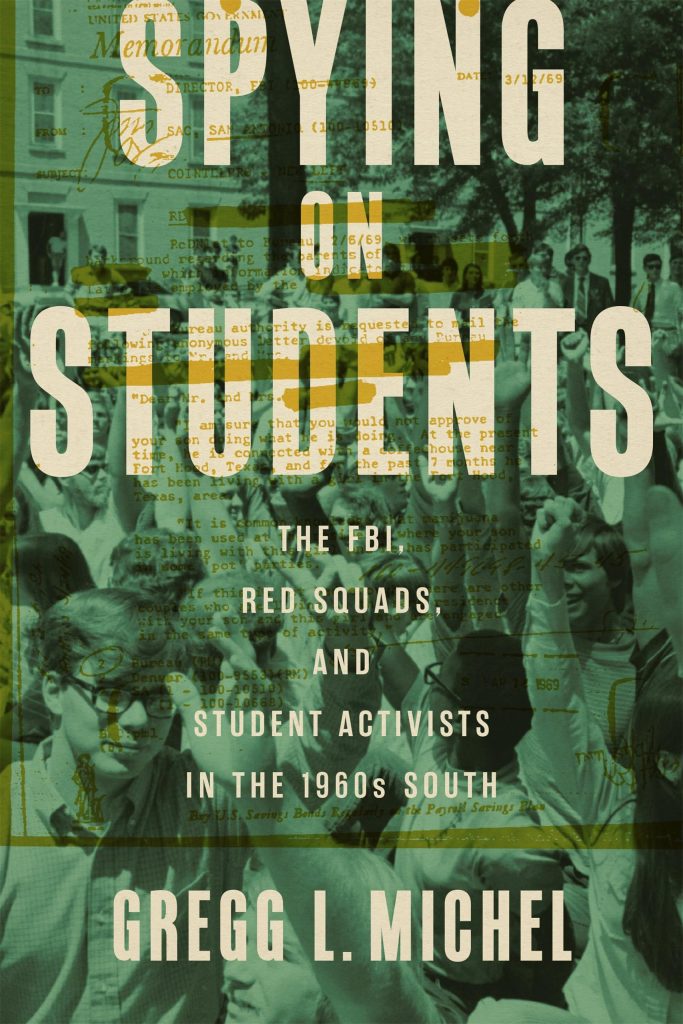

Gregg L. Michel is Professor of History and Assistant Department Chair at the University of Texas at San Antonio. This interview is based on his new book, Spying on Students: The FBI, Red Squads, and Student Activists in the 1960s South (LSU Press, 2024).
JF: What led you to write Spying on Students?
GM: Spying on Students grew out of my first book, Struggle for a Better South: The Southern Student Organizing Committee, 1964-1969 (Palgrave, 2004), which told the story of the most important progressive white student organization of the 1960s. I interviewed dozens of former activists for that book, and many of them almost off-handedly remarked that the police and FBI routinely spied on them, monitored their meetings, and disrupted their activities. Curious, I submitted a Freedom of Information Act request to the FBI and was astounded when the Bureau notified me that it had nearly 20,000 pages on the group. As I expanded my research beyond the FBI, I found that so-called intelligence divisions within local police departments in the South also had surveilled the organization as well as numerous other students who participated in activist causes. The vast majority of these surveillance operations were clandestine, hidden from the public and, after they eventually ended, buried in or purged from official records. I wrote this book to expose this sordid history and to show that law enforcement counterintelligence work played an important role in undermining the movements of the 1960s.
JF: In 2 sentences, what is the argument of Spying on Students?
GM: Spying on Students focuses on the law enforcement campaign against New Left and progressive student activists in the South, particularly white student activists who have often been overlooked in the scholarship of the era. Drawing on formerly secret FBI files and records of other investigative agencies, Spying on Students provides fresh insights on the destructive, broad-based, weaponized surveillance tactics deployed by state actors in their drive to suffocate dissent in the region.
JF: Why do we need to read Spying on Students?
GM: Surveillance has become normalized in our lives. Red light cameras, security monitors, online cookies, and other systems have inured us to the ways in which external entities routinely track our activities, our movements, and our relationships. In the hands of law enforcement and national security agencies, these tools can become weapons that infringe upon our freedoms and our rights. My book shows how this happened to student activists in the 1960s South and how, if left unchecked and without oversight, it can devastate people’s lives and careers. It can happen again. Indeed, it is happening, which makes it vital, as citizens, to be alert to the ways in which authorities can abuse the powers entrusted in them.
JF: Why and when did you become an American historian?
GM: I went to college intending to be a premed, but freshman chemistry quickly cured me of that goal. As I considered a “Plan B,” I gravitated toward U.S. history, especially the American South. I always had enjoyed reading history, which made it seem like a natural and obvious choice for me after my chemistry adventure. But what made history seem not just interesting but a possible profession was my study of the South under the tutelage of Jim Grossman at the University of Chicago. He helped me appreciate how history is contested and contingent and that the past is never settled but constantly being reinterpreted and considered from fresh perspectives.
JF: What is your next project?
GM: I continue to investigate surveillance and student activism. My new project focuses on a southern journalist who secretly collaborated with the FBI to monitor student activists in the 1960s. Such collaborations received wide exposure as a result of congressional investigations in the 1970s into FBI abuses under the leadership of J. Edgar Hoover. The story of this journalist’s work with the FBI will offer insight into how journalists became weapons, both wittingly and, in some cases, unwittingly, in state-sanctioned campaigns to undermine leftist activists.
JF: Thanks, Gregg!